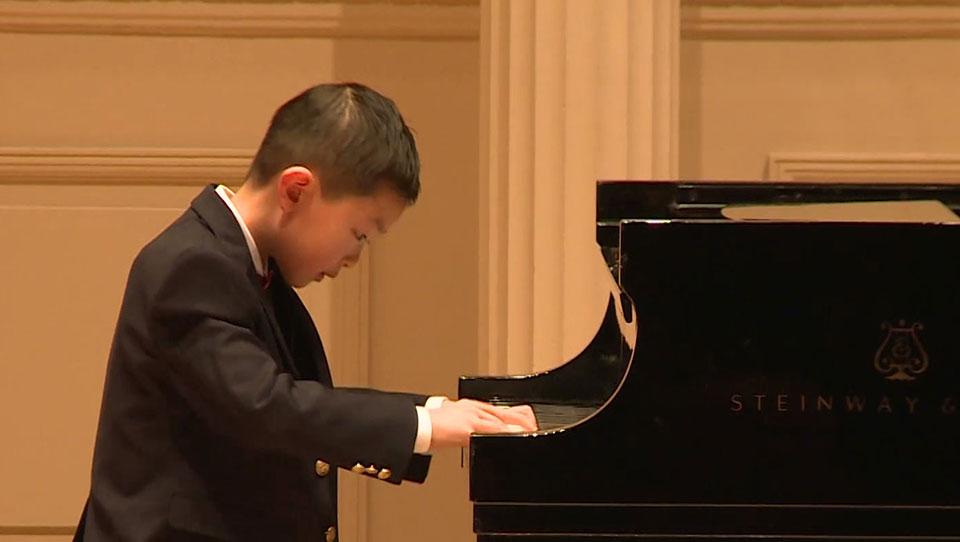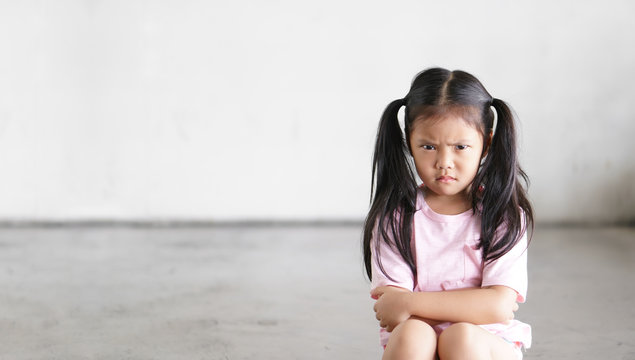They say that comparison is the thief of joy, and few statements ring truer.
As an Asian American student, I often felt like I was cast in the shadow of my cousin, the golden child of our family.
While I navigated the joys of childhood—TV shows, sports, and video games—he lived in a world that seemed almost otherworldly.
His life revolved around a relentless focus on academics and self-improvement.

My parents admired his discipline so much that they tried to emulate his upbringing in our household. This meant that my indulgences in TV, sports, and video games were often met with disapproval.
I remember how my achievements were constantly compared to my cousin’s perceived discipline.
If I spent time playing a video game after finishing my homework, I would hear, “Your cousin doesn’t waste his time like this. He’s always working on something productive.”
Endless Comparisons
Yet, the comparisons didn’t stop with family.
I was surrounded by family friends who excelled in pursuits like piano, each one more accomplished than the last.
One memory stands out: after months of practicing a challenging piano piece, I finally performed it flawlessly at a local competition.
I was ecstatic, ready to share my success with my parents. But their response was lukewarm.
“That’s nice, but did you hear about Johnny? He’s performing at Carnegie Hall next month.”


In that moment, my pride in my accomplishment was overshadowed by the reminder that someone else was doing something even greater.
This kind of comparison isn’t just disheartening; it’s demoralizing.
It can make children feel like their efforts will never be enough. Rather than motivating me to work harder, it led me to question why I was even trying at all.
Each achievement felt diminished, like a mere stepping stone compared to the mountains others had climbed. It wasn’t that my parents didn’t appreciate my efforts—they truly did. But their focus always seemed to be on how I measured up against others.
This constant scrutiny planted seeds of doubt in my mind. No matter how much effort I invested, it felt like I was never truly good enough.
It discouraged risk-taking and personal growth, as I worried about falling short of someone else’s standards.
Looking back, I realize that what I needed most was validation and support—not comparisons. I wish my parents had celebrated my successes, no matter how small, instead of using them as a baseline to measure against others.
Effects of Comparing Your Child to Others
Comparison can significantly hinder a child’s development and progress. It’s essential to measure a child’s growth against their own past performances rather than against their peers.
Comparing your child to others might seem like a way to motivate them, but it often leads to unintended negative consequences.


A lack of confidence can lead to overly forceful parenting, causing children to experience a decline in self-esteem rooted in self-doubt. This dynamic can strain the bond between parents and children, creating an unfavorable environment that stunts their development.
The bond between parents and children could be ruined. The child grows in an unfavorable environment, stunting their development.
In this context, parents may also begin to question their own abilities. They wonder if they are being good enough or providing adequately for their children.
This self-doubt can lead to more forceful and less empathetic parenting practices.
As parents, it’s crucial to understand that each child is unique and develops at their own pace.
Comparing them to others does not help; it only creates unnecessary stress and pressure.
Important Things to Remember About Child Development
As comparisons heighten stress within the family, they can create an environment where even the youngest children feel the impact.
Major tensions can disrupt family dynamics, and unfavorable experiences during prenatal and early childhood can alter brain structure and chemistry in lasting ways. For example, severe neglect—often exacerbated by the pressure of comparisons—can have more profound consequences on growth and health than physical abuse.


Young children who underwent extended periods of neglect display more severe cognitive impairments, concentration issues, language deficits, scholastic challenges, withdrawn conduct, and issues with peer interaction as they become older compared to kids who were the victims of overt physical abuse.
It’s crucial to understand that development is not solely determined by genetics; it’s a complex process influenced by both environmental factors and early experiences.
Significant events in a child’s life can chemically alter gene expression, impacting their overall development and ability to thrive.
For instance, while infants are born with the potential for impulse control and memory retention, their early experiences, shaped by family dynamics and comparisons, lay the groundwork for how effectively these skills develop.
There are five stages in child development—newborn, infant, toddler, preschool, and school age.
It is during the school age phase that comparisons with peers often become more pronounced. Constructive comparisons can be beneficial, but they should remain within healthy limits.
To foster a supportive environment, comparisons should emphasize individual progress alongside peers, focusing on positive feedback rather than negative criticism. This approach helps mitigate the detrimental effects of comparison and nurtures healthy development.
There Are Better Alternatives to Comparisons
Remind yourself that there is a better choice than comparison. Occasionally, parents adopt the erroneous belief that pressuring their children to continuously measure up to others will somehow boost their motivation and potential.
This is blatantly false.
Please remember that communicating things related to a child’s performance should be done empathetically and responsibly. Comparing your child to others never helps!
Inform yourself that the comparison is inaccurate.
Understand that a child’s growth is influenced by a variety of things, including their physical and mental capabilities as well as the environment in which they learn.
Talk to your child and help simplify things if they struggle with understanding lessons or learning.
Build Trust
You undermine your role as a parent if your children don’t trust you or if you constantly compare them to others.
Combining the two, if you give your child the impression that they are a burden on you, they will lose faith in you, and that is detrimental to their overall growth.
Nobody enjoys continually being judged by others, and when your own parents are being so critical, it’s much more painful and embarrassing. It’s critical that you comprehend how constantly comparing your child to others can lead them to believe they are inadequate, damaging their self-esteem, and is something you definitely don’t want.
They could even begin to dislike you.
A Food for Thought
As working professionals, mostly masking it up as fully-grown and responsible adults, we perform better when our shortcomings are pointed out without any blithe comparisons with others.
Would it be a lie if we say that we don’t like to be compared and pitched incessantly against our peers?
Think about the young ones who are still figuring out their lives. It is more rational to focus on a child’s individual needs rather than pointing fingers at them when they perform poorly.
Nurturing a child involves being thoughtful, kind, and understanding of their situations.
Supporting them in their hours of challenges and letting them go when they find a path of their own defines good parenting. You would want your child to come back to you for help, right? Hearing them out and treating their every fear as valid would make you their safe space. In no time, you would become their most reliable and favorite human. That would be a win for all—your child and you!
Confidence stems from feeling like we can overcome difficulty. Developing a sense of resiliency in our children is critically important. (Healthy Set Go)
Helpful Tips
- Celebrate individual achievements. Every child succeeds, even in small ways. They deserve celebration. By praising their efforts, we can boost their confidence. It will encourage them to strive for more.
- Encourage personal growth. Instead of comparing children to others, focus on their growth and development. Highlight their improvements and milestones. This will boost their self-worth and motivation.
- Provide positive reinforcement. Acknowledge achievements. This creates a positive feedback loop. This not only makes children feel valued, but also reinforces the behavior of striving for excellence.
- Set Realistic Expectations. While it’s good to challenge your children, they should be achievable.
- Support children in setting their own goals. Provide guidance to help them achieve these goals.
- Foster a supportive environment. Make a place where children feel safe to express themselves. They should feel safe to make mistakes and learn from them. This nurtures resilience and a growth mindset.


By pointing out these practices, I hope to encourage a nurturing and supportive environment for future generations.
It’s time to recognize that every child’s path is different, and that their worth is not determined by how they measure up to others.
Through positive reinforcement and genuine appreciation for each child’s unique journey, we can help them achieve their fullest potential without the burden of constant comparison.






